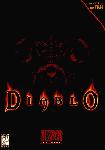
Diablo - How it Saved the Computer RPG
A debatable topic if there ever was one but 1Up has a piece titled How Diablo Saved the Computer RPG, looking back at market at the time, the release of Diablo and why it was successful (with some dodgy assertions). From the opening:
It's safe to say that by 1995, the computer role-playing game was dying. RPGs were losing traction to the wave of games modeled after two recently innovative titles: 1992's Dune II: The Building of a Dynasty and 1993's Doom. After the success of those two titles, the computer game industry as a whole shifted to producing more real-time strategy games and first-person shooters. The dwindling audience that enjoyed turn-based role-playing games full of mechanics, simulations, and obscure details were then being swayed by turn-based strategy games like Civilization II.
By this time, traditional first or third-person RPGs were still being released, but pretty much no one except Europeans bought them. One of the bigger successes in the genre came from a small studio in Maryland: The Elder Scrolls II: Daggerfall from Bethesda Softworks. Yet that was more of an anomaly -- Bethesda saw better traction from shooters like Terminator: Future Shock and its sequel SkyNET. Even the stalwart Ultima series -- Lord British's saga of isometric RPGs in a fully fleshed-out fantasy universe -- abandoned its core principles in pursuit of the action-driven market. Ultima fans generally felt betrayed when Ultima VII Part Two: Serpent Isle -- a party-based RPG with a vast world -- was followed up with Ultima VIII: Pagan -- which featured a lone hero in a much smaller setting that bizarrely featured platforming elements (most likely in pursuit of luring action and even console gamers to the Ultima series).
Information about
DiabloSP/MP: Single + MP
Setting: Fantasy
Genre: Hack & Slash
Platform: PC
Release: Released

